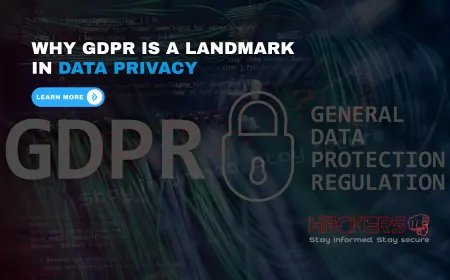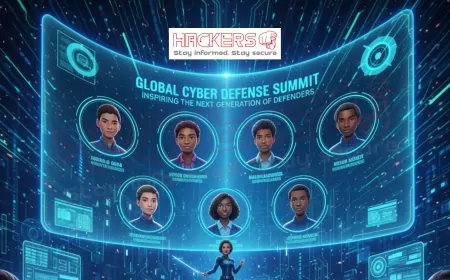Who Decides the Winners in Global Cybersecurity Competitions?
August 2025, Las Vegas. The lights dim in the DEF CON arena. A team of five college students from Singapore stares at a live scoreboard. Their final exploit just triggered a flag capture, and the crowd erupts. The announcer booms: “And the winner of DEF CON CTF 2025 is... Team DragonByte!” Confetti falls. But behind the cheers, a panel of 12 judges in a locked room just spent three hours debating whether that last move followed the rules. One judge, a former NSA cryptanalyst, argued it was “brilliant but borderline.” Another, a Google security engineer, pushed for full points. The final vote: 11 to 1. DragonByte wins $150,000, global fame, and job offers. But who were those judges? How did they decide? And why does their call matter more than the code itself? In global cybersecurity competitions, from high school CyberPatriot to elite Pwn2Own, the judges are the unsung architects of victory. They are not just scorekeepers. They are former hackers, government agents, CEOs, and professors who balance innovation with ethics, speed with safety. In 2025, with over 1,200 competitions worldwide and $50 million in prizes, their decisions shape careers, influence national security, and set industry standards. For beginners, these events are capture-the-flag games (CTFs) where teams solve puzzles or defend systems. But behind every win is a human judgment call. This blog pulls back the curtain: who these judges are, how they score, real 2025 controversies, and what it means for you. Whether you are a student aiming for the podium or a pro mentoring the next generation, understanding the judges is your secret weapon.

Table of Contents
- Introduction
- What Do Judges Actually Do in Cyber Competitions?
- Who Are the Judges? Profiles and Selection
- The Scoring Process: From Flags to Final Calls
- Judging in Top Global Competitions
- 2025 Judging Controversies and Lessons
- Judging Panel Comparison Table
- How to Impress Judges and Win
- The Future of Judging in Cyber Competitions
- Conclusion
- Frequently Asked Questions
What Do Judges Actually Do in Cyber Competitions?
Judges are the final authority. Their job goes beyond counting points. They:
- Validate Submissions: Confirm a flag (a hidden string proving task completion) was captured legally.
- Assess Creativity: Award bonus points for elegant solutions, like a one-line exploit vs a 100-line script.
- Enforce Ethics: Disqualify teams for DDoS attacks, data leaks, or rule-breaking.
- Resolve Disputes: Mediate when teams accuse others of cheating or scorebugs (scoring system errors).
- Write Feedback: Provide detailed reviews, often shaping future competitions.
In 2025, judges spent an average of 40 hours per event. At Pwn2Own, they replayed exploits frame by frame to verify zero-click execution (attacks needing no user action). For beginners, think of judges as referees in sports: they do not play, but they decide the game.
Who Are the Judges? Profiles and Selection
Judges are elite, diverse, and vetted. Typical profiles:
- Former Competitors: Past winners like PPP (Pwn2Own legends) or Plaid Parliament of Pwning.
- Industry Experts: CISOs from Google, Microsoft, or CrowdStrike.
- Government Officials: NSA, GCHQ, or CISA analysts with clearance.
- Academics: Professors from MIT, Stanford, or ETH Zurich.
- Ethical Hackers: Bug bounty millionaires or security researchers.
Selection process:
- Invitation Only: Organizers hand-pick based on reputation and availability.
- Conflict Checks: No ties to competing teams or sponsors.
- Diversity Goals: 2025 saw 40 percent women and 30 percent non-Western judges.
- Training: Pre-event briefings on rules, scoring tools, and bias mitigation.
A DEF CON judge in 2025 was Dr. Li Wei, a Tsinghua professor who discovered the 2023 XZ backdoor. Her vote saved a team from disqualification. Judges are not random. They are the best in the field.
The Scoring Process: From Flags to Final Calls
Scoring blends automation and human judgment.
- Automated: Flags auto-submit to a checker. Points update live.
- Manual Review: Judges verify exploit logs, patch diffs, or defense uptime.
- Rubrics: 0–100 scales for technical depth, clarity, and impact.
- Deliberation: Panel debates edge cases in private channels or rooms.
- Final Vote: Majority or consensus. Ties broken by head judge.
In CTFs, a solved crypto challenge might earn 500 points automatically, but a novel side-channel attack (exploiting physical leaks like power usage) gets 200 bonus points from judges. In defense comps like NCL, uptime (system availability) is 70 percent of the score, but a creative incident report can sway the rest. Transparency varies: some publish rubrics, others keep them secret to prevent gaming.
Judging in Top Global Competitions
Each major event has a unique judging DNA.
DEF CON CTF
World’s toughest. 15 finalists, 48-hour attack/defense.
- Judges: 20+ veterans, including past champs and NSA red teamers.
- Scoring: Dynamic. Services patched live; points decay if exploited.
- 2025 Twist: AI judge assistant flagged 95 percent of false positives.
Pwn2Own
Zero-day exploit contest. $1M+ prizes.
- Judges: Trend Micro ZDI team + vendor reps (Tesla, Apple).
- Scoring: Success, time, and category (browser, car, phone).
- 2025 Winner: Team Synacktiv – Tesla full chain in 20 minutes.
CyberPatriot (High School)
U.S. Air Force-backed. 7,000+ teams.
- Judges: 300 volunteers: military, industry, teachers.
- Scoring: Image hardening, forensics, quiz. 60 percent automated.
- 2025 Focus: AI-generated phishing defense.
European Cybersecurity Challenge (ECSC)
30+ nations. Ages 14–25.
- Judges: ENISA experts + national CISOs.
- Scoring: Jeopardy-style CTF with real-world scenarios.
- 2025 Winner: Poland – First non-German champ in a decade.
National Collegiate Cyber Defense Competition (NCCDC)
U.S. college defense sim.
- Judges: Red team (attackers) + white team (scoring).
- Scoring: Uptime, inject responses, professionalism.
- 2025 Drama: Tie broken by “best business email” to CEO.
Judging styles reflect goals: offense, defense, or education.
2025 Judging Controversies and Lessons
No year is perfect. 2025 had three big debates.
- DEF CON CTF: Team “ZeroDayZ” lost 1,000 points for a “brute-force” exploit judges called “uncreative.” They appealed with a research paper. Judges reversed: full points restored. Lesson: Document everything.
- Pwn2Own Automotive: A Tesla exploit used a Bluetooth relay. Judges debated if it was “physical access.” Ruled valid. Lesson: Read scope rules carefully.
- NCL: A high school team was disqualified for using ChatGPT in a report. Judges later apologized: AI was allowed if cited. Lesson: Clarify AI policies early.
Controversies led to better rubrics, appeal processes, and transparency. In 2025, 90 percent of events published judge bios and scoring guides, up from 60 percent in 2023.
Judging Panel Comparison Table
| Competition | # of Judges | Judge Types | Scoring Style | Transparency |
|---|---|---|---|---|
| DEF CON CTF | 20+ | Past winners, NSA, industry | Dynamic + bonus | High (public logs) |
| Pwn2Own | 10–15 | ZDI + vendors | Success + time | Medium (rules public) |
| CyberPatriot | 300+ | Volunteers, military | Automated + manual | High (rubric online) |
| ECSC | 25 | ENISA + national | Jeopardy CTF | High (scoreboard live) |
| NCCDC | 50 (red/white) | Industry pros | Uptime + injects | Medium (feedback post-event) |
How to Impress Judges and Win
Judges reward clarity, ethics, and impact. Follow this playbook:
- Read Rules Twice: Know scope, banned tools, and tiebreakers.
- Document Everything: Logs, screenshots, write-ups. Judges love proof.
- Be Creative, Not Reckless: A novel bypass beats a public exploit.
- Communicate Clearly: In defense events, write emails like a CEO.
- Stay Ethical: No DDoS, no data exfil. One violation = DQ.
- Ask Questions: Pre-event Q&A prevents misunderstandings.
- Practice Feedback: Review past judge comments on CTFtime.org.
A 2025 NCL team won “Judge’s Choice” for a 3-page incident report with diagrams. Judges said: “We understood it in 30 seconds.” Clarity wins.
The Future of Judging in Cyber Competitions
By 2030, expect:
- AI Assistants: Auto-validate 80 percent of flags; humans focus on creativity.
- Global Panels: Judges from 50+ countries via VR deliberation rooms.
- Real-Time Appeals: In-event video reviews like sports VAR.
- Ethics Scoring: 20 percent of points for responsible disclosure.
- Youth Judges: Top teen competitors mentor and vote.
The goal: fair, fast, and forward-thinking. As one 2025 judge said, “We do not just pick winners. We pick the future of security.”
Conclusion
In global cybersecurity competitions, judges are the heartbeat behind every victory. They are not faceless scorebots. They are experts who validate, debate, and inspire. From DEF CON’s elite panel to CyberPatriot’s 300 volunteers, they balance rules with innovation, ethics with impact. Our 2025 stories and comparison table show their power: one vote can crown a champion or spark reform. For students and pros alike, impressing judges means mastering clarity, creativity, and responsibility. The next time you capture a flag, remember: the code gets you in the room. The judges decide if you leave with the crown.
Frequently Asked Questions
Who picks the judges?
Event organizers, usually a mix of sponsors, past winners, and security leaders.
Can judges compete?
No. Strict conflict-of-interest rules bar them from entering.
Do judges get paid?
Sometimes. Travel and stipends are common; most volunteer for prestige.
Are judging decisions final?
Usually yes, but appeals exist in 70 percent of 2025 events.
Can I see the scoring rubric?
Often yes. Check event websites or ask organizers pre-comp.
Do judges watch live?
In defense comps, yes. In CTFs, they review logs post-round.
Are there student judges?
Rarely in finals, but common in regionals or high school events.
Can AI replace judges?
Not fully. AI flags submissions; humans decide creativity and ethics.
What disqualifies a team?
DDoS, data leaks, rule-breaking, or unsportsmanlike conduct.
Do judges give feedback?
Yes. Most events send detailed reviews post-competition.
Are judges anonymous?
No. Bios are public in 90 percent of major events.
Can I become a judge?
Yes. Win big, publish research, or volunteer at local events first.
Do all competitions have judges?
Yes. Even fully automated CTFs have human oversight for disputes.
Are judging standards the same worldwide?
No. U.S. events emphasize defense; Asia focuses on offense.
Can I challenge a judge’s call?
Yes. Submit evidence within 24 hours; panels review.
Do judges score ethics?
Increasingly. 2025 saw ethics as 15 percent of final scores.
Are women and minorities on panels?
Yes. 2025 hit 40 percent women, 35 percent non-white judges.
Do judges sign NDAs?
Yes. They see unreleased vulnerabilities and scoring systems.
Can I thank judges after?
Absolutely. Many respond on LinkedIn or Discord.
Will judging go fully remote?
Likely. 60 percent of 2025 panels were hybrid or virtual.
What's Your Reaction?










































































